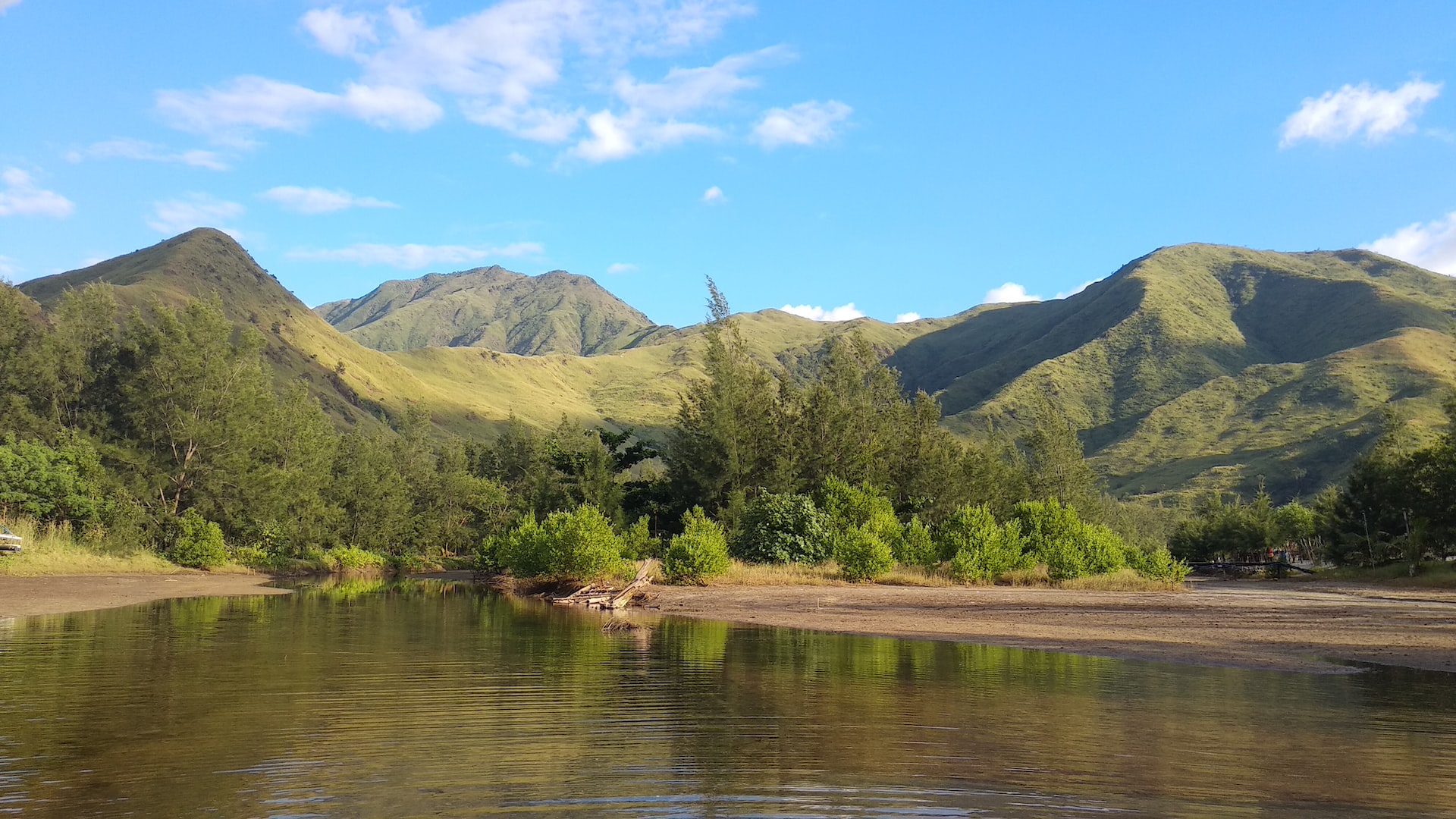
By Eduardo Bata, Team leader and ranger, Tamaraw Conservation Program, Department of Environment and Natural Resources, Philippines
I am Eduardo Bata, a 57-year-old resident of San Jose in Occidental Mindoro (the western half of the Philippines island of Mindoro). My relatives, friends and colleagues call me Ed. I am truly proud of the 36 years I have dedicated to being a ranger for the Tamaraw Conservation Program operated by the Department of Environment and Natural Resources. Tamaraws, also known as Mindoro dwarf buffalo, are a source of huge pride for us as they are found only on our island.
The rangers are tasked with regularly patrolling Mt. Iglit Baco Natural Park, Mt. Calavite Wildlife Sanctuary and the Aruyan-Malati Tamaraw Reservation to protect the critically endangered tamaraws, of which only around 480 remain. Our “office” is the huge land area we patrol where the remaining tamaraws live. A patrol shift lasts 22 consecutive days so we are away from home for nearly a month at a time. It’s never easy to be away from the family. Cocoy, a fellow ranger, once told us his very young daughter hardly recognised him when he returned home! He was laughing but we could see the tears and hear his voice trembling.
Being a tamaraw ranger is quite dangerous but fulflling. We can come face-to-face with the armed poachers and tamaraw hunters who we must challenge. We hike for miles through muddy, slippery, rocky mountain trails wearing often old, worn patrol gear. We and the park wardens also serve as tour guides for park visitors, so we have strong knowledge of the trails and the park’s fora and fauna. We also conduct dialogues with the indigenous Mangyan community so that they can work with us to protect the tamaraws. Several wardens and rangers are from the Mangyan tribe, who are highly respected for their knowledge of the mountains and have long co-existed with the tamaraw.
We must protect the tamaraws from poaching and hunting. They should be left in peace to reproduce and grow their population. We do not want the children of our children to no longer be able to see wild tamaraws because we failed to protect the animals.
Tamaraws previously roamed the entire island of Mindoro in their hundreds of thousands. Now they are confined to the highlands due to rampant poaching, habitat degradation and changing land use. Only around 500 of this unique species remain. Captive breeding to revive the population has resulted in only a single offspring. Its survival is therefore massively dependent on the wild population, which was threatened once more by the COVID-19 pandemic.
The pandemic affected all of us including me, my family and my co-workers. Wide-ranging community lockdowns prevented us from leaving the house. A nationwide closure of the parks meant no tourists and zero livelihood for communities like us that depend on tourism for extra income. Government budgets redirected funds to COVID-19 programmes, which also affected our office. The wardens had no tourists to guide and some of my fellow rangers were removed from duty. As elsewhere in the world, this was an opportune time for poachers and hunters and there was a large increase in poaching during this period, perhaps due to hunger as many lacked food due to reduced incomes. We therefore continued to patrol despite the order to stay home, and intensifed our patrols to ensure that the tamaraws were protected. We were very careful to avoid exposing the park’s indigenous peoples to the virus.
BIOFIN’s 2020 Together for Tamaraws crowdfunding campaign was a huge help for me and my family. It is so heart-warming to know that Filipinos and global citizens alike, of various age groups, incomes, and interests have supported us - no matter how large or small the individual amount. The funds raised helped us get through lockdown and continue our jobs as guardians of the tamaraws. Proceeds provided us with much needed patrol equipment, uniforms, feld allowances and groceries for our 22-day shifts. Even before the pandemic, BIOFIN was helping us raise awareness of the importance of protecting tamaraws in both Mindoro and nationally.
There has been a slow but steady increase in the wild tamaraw population, which brings me joy and honour. It validates our work as rangers even if this means we are dodging bullets and away from our families for long periods. I sincerely hope that the tamaraws can continue to thrive on Mindoro.
Let us not give up even in the face of diffcult challenges, but rather see them as opportunities to improve ourselves and our jobs. In end, if we work in partnership with nature, we will succeed.
The Together for Tamaraws campaign was active from July to December 2020 to address the temporary setback of park closure and lack of employment due to COVID-19 restrictions. A total of 24 rangers and 35 wardens, most of whom belong to the indigenous Mangyan tribe, are the primary beneficiaries of the campaign. Food packs can be provided for as little as US$1 per day, while US$2 can support field allowance. The campaign raised more than US$32,000, surpassing the original target of US$22,980, and captured the interest of many Filipinos, including abroad, in the plight of the tamaraw rangers.
-
This story was published in the UNDP-BIOFIN's "Investing in the Planet’s Safety Net: Stories from the Field", a collection of eleven stories authored by partners from across the world.
Categories
Archives
- April 2025 (9)
- March 2025 (8)
- February 2025 (2)
- January 2025 (5)
- December 2024 (4)
- November 2024 (5)
- October 2024 (14)
- September 2024 (6)
- August 2024 (9)
- July 2024 (7)